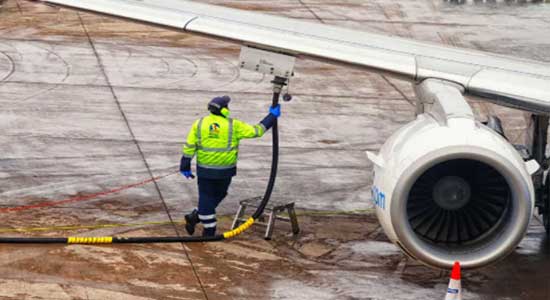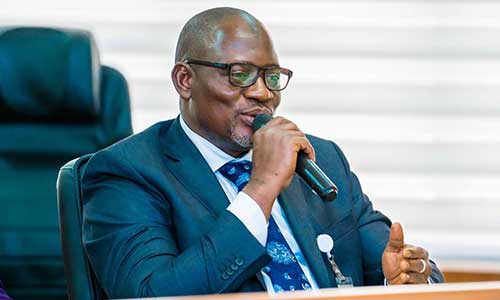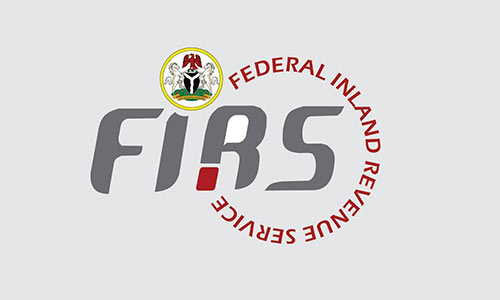OIL & GAS SECTOR INSIGHT 10/05/2022
Aviation Fuel: NNPC, Airlines Agree On Three-Month Supply At N480/Litre

The House of Representatives on Monday held a stakeholders meeting to resolve the crisis trailing the aviation fuel price increase, with the Nigerian National Petroleum Company Limited and domestic airline operators reaching a deal.
It was agreed that the NNPC would supply Jet-A1 to marketers nominated by airline operators for a period of three months at N480 per litre, pending when the carriers would be granted licences to import the commodity.
This is just as the AON said it had nominated 10 marketers for the purpose.
The Speaker of the House, Femi Gbajabiamila; and Deputy Speaker, Ahmed Wase, presided over the meeting that lasted about four hours, with the Governor of the Central Bank of Nigeria, Godwin Emefiele; and the Group Managing Director, Nigerian National Petroleum Company Limited, Mele Kyari, among others in attendance.
Airline operators had last week threatened to halt their services over soaring aviation fuel prices, effective Monday (yesterday).
They had given a notice to the Minister of Aviation, Hadi Sirika; and the Director-General, Nigerian Civil Aviation Authority, Musa Nuhu.
The AON said the price of aviation fuel had risen from N190 to N700 per litre.
The operators, however, suspended the planned flight shutdown for economic and security reasons.
The Senate and the House had intervened in the fuel crisis before the notice.
After the meeting on Monday, Gbajabiamila said the stakeholders had reached a four-point agreement, following their meeting with the airlines. Firstly, he said the carriers had agreed to call off the proposed withdrawal of services.
The Speaker said in part, “Two, NNPC and the airline operators have both agreed that in the interim – for three months, your (AON’s) marketers of choice, that you are comfortable with, that you know their price would not drive you out of business, would be supplied with jet fuel.
“The third resolution is that in the mid-term to long-term, in fact right now, you will begin or commence the process of applying for your license to be able to import your own jet fuel, so that it will remove middleman or the vagrancies of it; you will know the landing cost and how it will assist you in your business.
“According to the CBN governor, there are six million litres available now at N480. You will get an allocation in the next three months through the companies (marketers) that you have nominated so that you would not come back and say jet fuel is now a certain amount and it is the fault of the NNPC. You have nominated those people that are selling to you.”
Gbajabiamila added, “And in the process of applying for their licence, Midstream would as much as possible grant as many waivers as possible that do not touch on security and safety.”
The meeting also agreed that the House Committee on Aviation should be part of the further talks between oil regulators, aviation regulators and the airline operators.
Reechoing what other stakeholders had alleged, Gbajabiamila stated, “I agree with you; I think the problem is with the marketers.”
While thanking those in attendance, the Speaker said, “The last people we want to thank are the marketers right now.”
Before then, Kyari had accused the AON of “attacking” and “making institutions” on the NNPC over its role in the crisis.
The Vice-Chairman, AON, Allen Onyema, who is also the Chairman of Air Peace, however, denied the allegation, saying the operators took exception to the GMD’s comments.
Earlier in his opening remarks, Gbajabiamila said, “We are at the precipice today in Nigeria. It is a crucial moment for us. There is a crisis at hand. The shutdown of airline operations has the potential of shutting down this government. We cannot sit here as stakeholders and fold our arms and watch this happen. We need to address this matter once and for all.”
Onyema also said, “We were told here at that last meeting that fuel would be sold to us at N500, which we protested that it was still on the high side because even when fuel was selling at N200 or N250, the operating cost was about 40 per cent worldwide. It is like that.
“It rose to N400 and then to N450, and that was when we were alarmed and you noticed that everybody tweaked his inventory when we now raised our base fare to about N50,000, which did not actually address the matter. That was when it was N400.
“We were invited to the House and when we came here, it was reached that they would give us fuel at N500 within three days. That never happened. We continued writing and nothing happened.”
The AON vice chair added that Nigerian Midstream and Downstream Petroleum Regulatory Authority later invited the operators and they were told that the President, Major General Muhammadu Buhari (retd.), had “approved 25,000 metric tonnes for us as a palliative to help us.”
He said, “We were very grateful to the President. It was not free. We were happy. We were told to nominate marketers that would market this product for us. We were told to have a meeting with these marketers. We called all the marketers. We held a meeting with them. We decided the logistics, so they would take their logistical costs and everything.
“At the end of the day that fuel was getting to them, they told us, at N335. So, we put everything together and it would be less than N400 for the cost and we said even if they sell to us at N450, it would be okay.
Onyema stated, “If we crumble today, over a million jobs would be lost.” Kyari also admitted that the last meeting agreed to make the marketers sell the product to airlines at N500 per litre for three days, pending the day they would sit down and agree on this pricing formula.
He said, “I confirm that they had sat down and engaged and agreed on a pricing structure. Needless to say, there is no fixed price. This is a deregulated product. So, you cannot hold onto any price. And indeed, what you have seen in the media is a N700 reference point. It cannot be a reference point. It depends on the market condition. It can be higher than N700, depending on the market. This market shifts. As we speak, it is closely related to the price of crude oil.
“We cannot fix the price. We cannot ask for N500. We cannot say it must be below N600 or N700. That is why we insisted they go and have a formula that is transparent that each one of us can see. The only way we can have fixed prices is if we put subsidies on. You can say it can sell for N500 in any circumstance, then somebody has paid for that difference. I am not sure this is what we are doing.”



